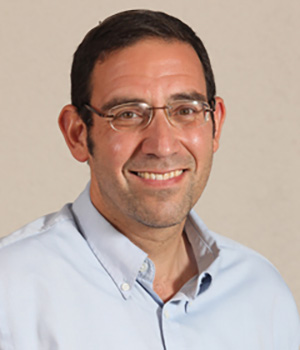
As Selichot commence this Saturday night (for Ashkenazim), the buildup to the Great Days begins in earnest. These are days of judgment, of pronounced Divine Presence, but also days of identity-crafting. During this period we fashion the person we would “like to be” from the shards of the person we “have become.” Teshuva and penitence are an odyssey through the inner self, in search of rescue, absolution and heightened identity. Teshuva itself can be experienced as a “process”’ or, alternatively, it can be transformational to our very identities. Chazal refer to a “ba’al teshuva” and not just someone who experiences teshuva—implying a deeper character renovation catalyzed by teshuva. The process can be limited to 40 days or it can continue to shape our moral journey. Ideally, we don’t hide from our failures but live with the abiding frustration of wasted opportunity—a frustration that hopefully motivates greater commitment and greater focus. This period in our calendar spotlights our ongoing search for renewed identity.
This past week in Israel we were temporarily distracted from this pursuit by national elections—for the second time in six months. Our inability to form a government after the previous elections prompted a snap second round of voting. At the time this article is being drafted it is not altogether clear that a second election will produce dramatically different results or help avoid the political gridlock of six months ago. All expectations indicate that, once again, the formation of a government will be complicated.
To many, these political stalemates or hung elections indicate a dysfunctional democracy or a chronically divided society. In many ways this is misleading, and elections aren’t a precise barometer of social unity in Israel. Indeed, “society” in Israel is fractured along four major fault lines of disagreement: right wing as opposed to left wing, religious as opposed to non-religious, Ashkenazi as opposed to Sephardi and wealthy vs. poor. Effectively, it is almost impossible to sit across from another Israeli with whom you completely agree on every one of these issues. However, despite these fault lines, under normal day-to day conditions, life in Israel feels deeply united and deeply connected. The common project of resettling our homeland and defending our vulnerable state unites us despite our dissimilarities. Under normal conditions, and on a person-to-person level, we find a way to “make it work” in this small country we call ours.
In fact, many of these differences and distinctions are endemic as part of our national mission of collecting Jews from across the globe. If “scattered” Jews are finally flocking to Israel from different climates and bearing different cultural traditions, we expect them to arrive with different cultures, heritages and religious perspectives. This once-in-history congregation is bound to produce a kaleidoscope of humanity. Our small country’s uncanny ability to distill so much diversity is one of the charming parts of life in Israel just as it is a glimmer of Jewish history.
In stark contrast to the national unity we typically live with, elections are very polarizing experiences as parties jockey with one another for our precious votes. Attempting to distinguish themselves from their rivals, each party radicalizes its platform to accentuate differences between parties to land your vote. Six months ago we failed to form a government precisely because the electorate was split along two of the previously stated ideological/cultural fault lines. The primary electoral rift existed between the Likud and the Blue and White party, who differ primarily about the Palestinian issue. However, a secondary rift emerged between religious parties and a party that adopted a staunch anti-religious platform. Unable to merge all these interests and facing a splintered electorate, the process of forming a government collapsed.
Those elections and its splintered results created a mirage of political strife. The past few months in Israel, in the aftermath of this political fissure and democratic breakdown, haven’t been particularly contentious or quarrelsome. While politicians have radicalized their messages, most middle-of-the-road Israelis have simply continued where we left off before elections (despite the great financial waste).
Voting for a particular party is not and should not be an “identity moment” (24 hours before the election I am still not certain which party I will vote for). Identity is defined by more lasting and formative values and my vote is just a manner of maximizing our democratic voice and lending support to a particular party whose platform we deem impactful. Identity should not be wedded to politics.
Parshat Ki Tavo chronicles the ritual at the two mountains of Gerizim and Eival. The Divine Covenant was re-enacted as one mountain hosted “blessings” for righteous behavior while one hosted “punishments” or “curses” for errant behavior. Noticeably, the Torah describes the blessings in a direct manner: “These are the [tribes] who will bless the nation.” By contrast, others merely announce general “punishments” that are projected upon the mountain but unattached to a nation. We are fundamentally virtuous and noble and inherently deserving of bracha for moral and religious behavior. If and when we fail it and we suffer, it doesn’t and shouldn’t define us. Indeed, there are consequences to religious malfunction, but our inner core is one of blessing and potential—even when we squander some of that unlimited potential. If we search for identity during this period, it should be with the confidence that we look to restore an inner goodness that has been marred by life’s hardships and by our own failures. We aren’t creating inner virtue but merely replenishing it.
By Moshe Taragin
Rabbi Moshe Taragin is a rebbe at Yeshivat Har Etzion, located in Gush Etzion, where he resides.










